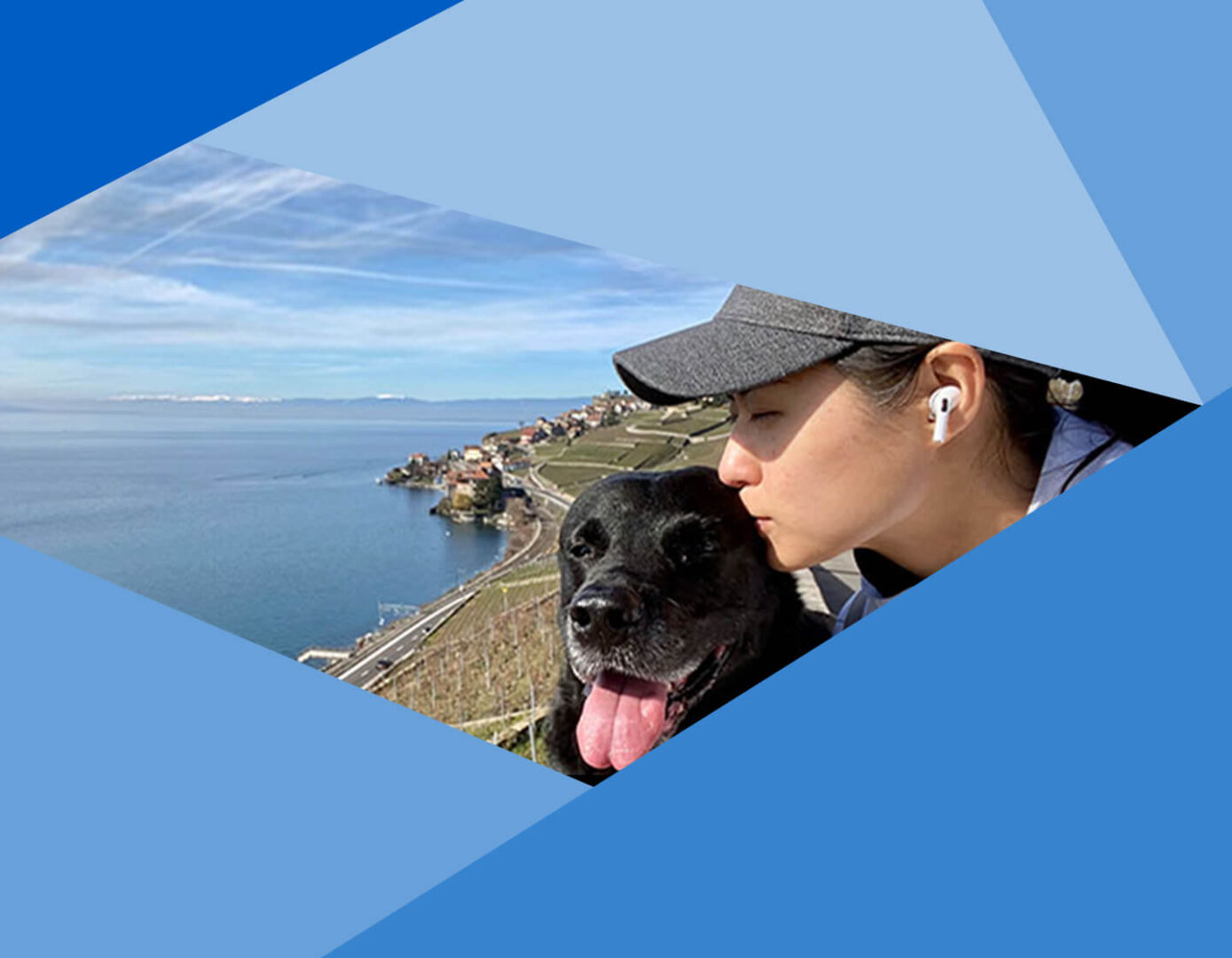
In December 2019, Haichen Liu had many plans for her year in Lausanne. As a keen salsa fan, she had pinned to her wall a schedule of dance events dotted around Europe over the course of the next year, and her intention was to attend a few of them to decompress from what she knew would be an academically demanding year.
Liu had put a lot of forethought into her chosen MBA course. Having gained considerable corporate experience in Beijing, China, she was looking forward to developing a more global business outlook and growing an international network of similarly experienced professional colleagues. Having made sure Pippin, her beloved black rescue Labrador, had the right papers for his Swiss gap year, she duly made her way to Lausanne.
“I was excited. I was nervous. I knew that Christmas was family-focused in Europe, but I was surprised by just how quiet it was. However, I invited my class colleagues to a New Year’s Eve party and although some of them had only arrived in Lausanne at 10pm that night, they still came to see in 2020 with me,” she said.
As much as the newly acquainted group of students were looking forward to working through the academic year together, things were about to change dramatically. While news of COVID-19 started hitting the headlines in Europe from January, in their first few months of learning together many remained unconcerned.
Liu, however, found that it brought back memories of another virus outbreak that had occurred in 2003. While SARS had not proved to be a significant threat outside of Asia, for those who had lived through it there, it remained a troubling memory.
“I was deeply concerned because, during the SARS outbreak, I was in middle school and I remembered the news of people dying, the strict lockdown, the detergent smells everywhere, and people being very cautious about social mixing,” she recalled.
By March, European countries had started to experience the devastating effects of COVID-19. As the transmission rates and health outcomes began to be understood more clearly, they began to move into the first lockdown.
At IMD, the MBA course had been running with mask-wearing and regular temperature checks, as well as an assurance to those students who preferred to learn remotely that they were free to do so. However, once Switzerland announced its lockdown on 14 March, there was no longer any room for face-to-face teaching.
“In that period, the MBA office was super-helpful. Everybody was learning new ways of interacting [online] and their agility – their ability to learn while simultaneously guiding others – was fascinating to watch. They accommodated our agenda a little bit so that from the technology perspective and the psychological perspective, we had enough time to adapt,” she said.
The teaching schedule was revamped in order to enhance the online learning experience. Small breakout groups and discussion-led learning were the first response by faculty keen to ensure that students felt actively engaged despite the sudden lurch into the brave new world of Zoom-based interaction.
“We found ways to accommodate group projects, to obey the law but meet each other. At the time, five people could gather and there were six to a team. So we had five working together and one on remote, and we would rotate it around the group,” explained Liu.
The course colleagues also supported one another through the ups and downs of lockdown, delivering food and medicines to those who were ill or had to isolate completely, and helping one another through more difficult moments.
“I had a shocking experience walking back home from school one evening. A stranger shouted abuse at me – I remember the words ‘corona’ and ‘Chine’ being repeated,” Liu recalled. “I got home and was seriously shaken by the experience.”
Liu shared her experience with her course colleagues over the next days and was met with their uniform support. “The support and empathy were overwhelming and it really made me realize that at IMD I was in a completely safe environment because it is such an international setting,” she said.
“Its diversity is completely different from other schools. For example in the US, you would find a relatively dominant culture and would need to adapt yourself to it. But at IMD I think there’s no dominant culture at all,” she said.
Having made the leap from China to Europe during an unquestionably challenging year, would she do it again? Liu shows no hesitation in answering the question.
“There’s no better place in a lockdown than Switzerland! And, within IMD, the agility and the adaptive response of the school is immense and unique. When you come here, you have to open yourself, step out of your comfort zone, and that journey is supported the whole way through, no matter what,” she said.
Since graduating with honors, Liu has moved to Hamburg, Germany, where she has taken a position at Danaher as Global Customer Experience and Service Efficiency Manager. Pippin is now enjoying his second year in Europe, and also continues to win friends and influence people wherever he goes.
“I adopted him in New York and he is an experienced international traveler now,” she laughed. “He loves the outdoors.”
It is clear that with social support and a friendly pet by your side, any challenge – even earning an MBA in COVID times – is worth taking.


